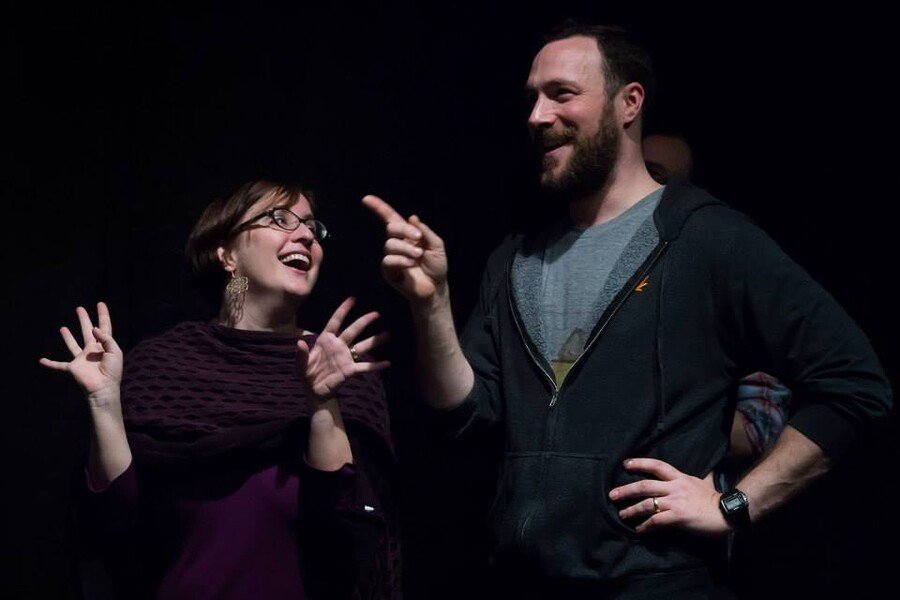Creating our own belonging
Like designing your own major, but for your life
Hi!
Much has been written about the health value of social connection, but I’ve seen much less ink spilled on the health impact of our connection to ourselves. For all the buzz about #selfcare, having a strong connection to self is too often seen as a nice-to-have (“rough day? time for a bubble bath!”) rather than what it really is: the foundation of our well-being.
When I was in high school, I was friends with people from many different "groups." When I started dating my now husband, Jordan Hirsch, he hung out with goth and "alternative" kids, and at one point, he told me that he saw me as "popular," which surprised me. We were both #dramaclub4lyfe. (We fell in love during a production of Guys & Dolls. He was Sky Masterson. I was the student director. Awwww.)
The point is, I've never been that comfortable as part of a group, in part because I've always felt more like the middle of a Venn diagram than any isolated circle. In college, I struggled to feel like I belonged, and in retrospect, I wish someone had told me I could design my own major (which I sort of ended up doing anyway, which is a story for another day). Then I really struggled to find a job that meant something to me, out of college, until I received the gift of stumbling into a job at PBS, where a few fires were lit that are still burning today (most of all: storytelling!).
In my 20s and early 30s, I kept feeling like I didn't fit, which I know is a feeling many of you can relate to. And I feel like my entire adult life has been about "designing my own major," or carving my own path…
…taking a little bit from this and that and here and there and synthesizing, creating, with increasing volumes of intuition and self-trust along the way.
I wish that school taught us how to live this way — how to listen to our own inner guidance, follow our instincts, and, when needed, create the thing we want that doesn’t yet exist. Sometimes that “thing” is a project, a book, a company, a gathering…
And, at its grandest, that “thing” is our life itself.
I am not denying the importance of social connection, not at all. We need other people, and finding people with whom we feeling a sense of belonging is a GIFT. When I said I’d never felt comfortable as part of a group, I lied: I felt hella comfortable as part of my improv group, JINX, back in the day. Remember #dramaclub? For me, there has always been freedom in performing, because of the ways in which it frees me from performing social roles in real life. In JINX, we spent most of our time together creating and playing, with joyful creative expression acting as social cohesion.
And while I may not feel a sense of belonging in many group settings, I definitely feel it in one-on-one relationships I have with many, many people, and for that, I count myself lucky.
So my point isn’t that relationships with other people don’t matter. Instead, it’s that for as much time as we spend looking outwards for where we belong, we would do ourselves a solid by looking inward, as well.
Because when we belong to ourselves, we create lives that feel like home.
A colorful sign that says "You belong" surrounded by houseplants
A postscript:
Part of belonging to ourselves is using our voices in alignment with our values. Expressing ourselves authentically is so closely interlinked with BEING ourselves authentically. In this way, finding the courage to post something that matters to you on LinkedIn may just be as crucial for your health as getting in those reps at the gym.
You are a mighty force.
- Amanda
P.S. Did you know that I work with organizations, as well as with individual women? The more that the women in your organization learn to tell the story of their work — authentically and in their own voices, on LinkedIn and beyond — the more you grow your strategic communication capacity and impact. And, added bonus: you’re also playing a part in dismantling the entrenched barriers that keep women quiet, in ways that limit us all. Let’s talk about how your organization can invest in women.


